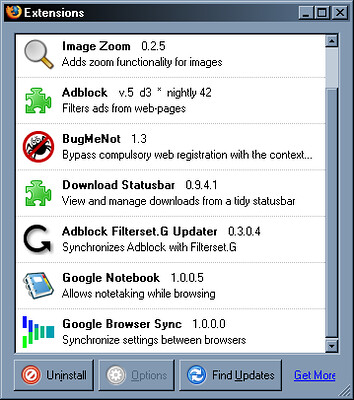File extensions and compatibility issues
In the digital age, file extensions play a crucial role in how we interact with our devices. They are like secret codes, telling your computer what type of content it’s dealing with and which programs to use. However, not all extensions are created equal—especially when it comes to compatibility. If you’ve ever stumbled upon a file that just wouldn’t open on your operating system, you know the frustration all too well.
Windows computers dominate the market, but many users may not realize that some file types are exclusive to this platform. This can leave Mac or Linux users scratching their heads as they try to access essential documents or applications designed solely for Windows. So which extension will only open on a Windows computer? Let’s dive into this often-overlooked aspect of technology and shed light on those elusive files that require a PC for access!
Understanding the difference between Windows and other operating systems
Windows and other operating systems often operate in distinct ecosystems. Windows, developed by Microsoft, is designed with a specific architecture that supports various proprietary file types.
On the other hand, macOS and Linux are built on different foundations. They favor open-source software and tend to emphasize compatibility with less conventional extensions. This divergence creates unique advantages for users but also presents challenges when sharing files across platforms.
Additionally, user interfaces vary significantly between these systems. While Windows offers a more traditional desktop experience, macOS relies heavily on its dock system for navigation. Linux can be highly customizable based on user preferences.
Such differences affect how certain file extensions function within each environment. Understanding these distinctions is crucial for anyone who frequently interacts with diverse computing systems or shares digital content across different devices.
Top 5 file extensions that can only be opened on a Windows computer
When it comes to file compatibility, Windows has its own set of exclusive extensions. Here are five that stand out.
First up is the .exe extension. This executable format is essential for running programs on Windows but won’t work on macOS or Linux without additional software.
Next, consider the .bat files. These batch scripts automate tasks in Windows environments and lack direct counterparts in other operating systems.
Another interesting one is .dll, which stands for Dynamic Link Library. These files support applications by providing shared functions crucial for many Windows apps.
The .msi extension follows closely behind as it’s used for installation packages specifically designed for the Microsoft ecosystem.
We have .reg files that modify system registries unique to Windows machines. Attempting to open these elsewhere could lead to confusion or errors.
Solutions for opening incompatible files on other operating systems
If you encounter a file that refuses to open on your non-Windows operating system, don’t fret. There are various solutions available.
One option is to use virtualization software. Programs like VirtualBox allow you to run Windows within another OS. This lets you access Windows-exclusive files without needing a separate computer.
Another solution involves using online converters. Websites such as Zamzar or CloudConvert can transform incompatible files into formats that your system supports. Just upload the file and choose the desired output format.
Additionally, consider downloading compatibility layers like Wine for Linux users. Wine enables certain Windows applications to run directly on Unix-like systems, providing more flexibility in accessing specific file types.
Reaching out for help from community forums can yield valuable insights and recommendations tailored to your situation. You’re not alone in facing these compatibility hurdles!
Tips for converting files to compatible formats
Converting files to compatible formats can save you from headaches. First, identify the file type. Knowing your starting point helps in choosing the right conversion tool.
Next, leverage online converters for quick changes. Websites like Zamzar or CloudConvert offer user-friendly interfaces and support a range of formats.
If you prefer desktop software, consider programs like HandBrake or FileZilla. These applications often provide more control over conversion settings.
Always double-check quality after conversion. Not all tools maintain original content integrity perfectly.
Also, keep an eye on security when using online services. Avoid uploading sensitive documents without ensuring they have robust privacy policies in place.
Familiarize yourself with common formats that promote cross-compatibility—like PDF or JPG—to simplify future transitions between different systems.
The importance of regularly updating software and choosing cross-platform extensions
Regularly updating software is crucial for maintaining compatibility and security. Software developers frequently release updates to fix bugs, patch vulnerabilities, and improve performance. Neglecting these updates can lead to issues when trying to open certain file extensions.
Choosing cross-platform extensions reduces the risk of running into compatibility problems. Formats like PDF or JPG are widely accepted across different operating systems, making it easier to share files without worrying about access issues.
By opting for versatile formats, you ensure that your documents remain accessible regardless of the device being used. This approach saves time and frustration in collaborative environments where team members may use various operating systems.
In a world that’s rapidly evolving with technology, staying updated helps protect against malware and other threats. Being proactive about software maintenance significantly contributes to a smoother user experience overall.
Windows-Exclusive: Which Extension Will Only Open on a Windows Computer
When browsing the digital landscape, file extensions can lead you down a rabbit hole of compatibility issues. Some formats are designed specifically for Windows and won’t play nice with other operating systems.
One prime example is the .exe extension. This executable file type runs programs on Windows but remains an enigma for macOS or Linux users. Attempting to open it elsewhere often leads to frustration and disappointment.
Another exclusive is the .bat extension, used for batch files in Windows command scripts. Again, this format doesn’t translate outside its native environment.
Additionally, the .msi installer package stands out as another Windows-only gem. It simplifies software installation but leaves non-Windows users stuck at square one.
These extensions serve specific functions tied closely to Windows architecture, making them pivotal yet limiting for cross-platform compatibility enthusiasts. Understanding these distinctions becomes essential when managing your digital toolbox effectively.
Know Your Extensions: Which Extension Will Only Open on a Windows Computer
Navigating the world of file extensions can be tricky, especially when it comes to compatibility. Some files are tied exclusively to Windows systems, meaning they won’t open on macOS or Linux without a workaround.
Take .exe files, for instance. These executable formats are designed specifically for Windows and will falter on other operating systems. Similarly, .bat (batch) files run scripts that automate tasks in Windows but fail elsewhere.
Another example is .dll (dynamic link library). These essential components help software function smoothly within the Windows environment but offer no utility outside of it.
Understanding these distinctions helps prevent frustration down the line. Recognizing which extensions belong solely to Windows allows you to plan your workflow effectively and avoid potential roadblocks in accessing important documents or applications.
Microsoft Insights: Which Extension Will Only Open on a Windows Computer
When discussing file extensions exclusive to Windows, Microsoft Office formats often come to mind. These include .docx, .xlsx, and .pptx. While other operating systems have made strides in compatibility, these files can present challenges outside of their native environment.
Another notable mention is the executable file extension: .exe. This format is designed specifically for launching applications on Windows. Trying to run an .exe file on macOS or Linux typically results in frustration.
Then there are system files like .dll (Dynamic Link Library). These files help Windows programs function correctly but are largely meaningless elsewhere.
It’s essential to be aware of these limitations when sharing documents or software across different platforms. Understanding which extensions tie you down will aid in smoother interactions with others who may not use Windows as their primary OS.

Understanding Compatibility: Which Extension Will Only Open on a Windows Computer
Understanding compatibility is crucial when navigating the digital landscape. Different operating systems use various file formats, and some are exclusive to a specific platform. Which extension will only open on a Windows computer For Windows users, this can lead to frustrations when trying to open files created with software that doesn’t run on other systems.
Several extensions remain tied closely to the Windows environment due to unique features or proprietary technology. These include .exe, .bat, and certain Microsoft Office formats like .docm and .xlsm. Each of these has characteristics specifically designed for Windows functionality.
Cross-platform compatibility remains a growing concern as our work becomes increasingly collaborative across different environments. Users must be aware that while many file types can be converted or opened using alternative software options, others might require more significant adjustments.
By understanding which extensions will only open on a Windows computer and taking proactive measures—like converting files to universally accepted formats—you can avoid potential headaches down the line. Stay informed about your tools and their limitations; it’s essential in today’s diverse tech ecosystem where collaboration knows no bounds.










